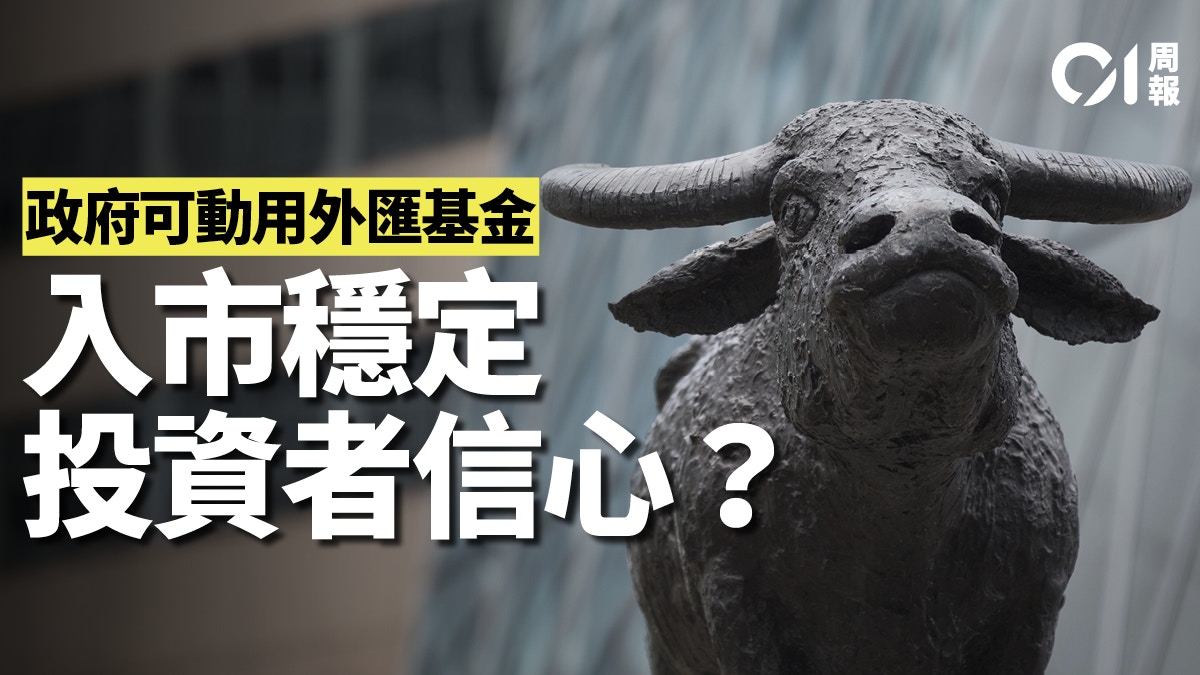Recently, the stock market in Hong Kong and even the mainland has continued to weaken, which has deterred many investors.
The Hong Kong stock market, in particular, has been falling for more than a year since peaking early last year.
The fundamental reason for the pressure on Hong Kong's financial market is the fundamentals of the economy, which has been affected by the economic downturn in the Mainland since last year, regulatory policies, as well as geopolitical influences such as the US interest rate hike and the Russian-Ukrainian war in the world.
Of course, Hong Kong alone cannot change these macroeconomic problems.
However, the financial market has been in a pessimistic situation for a long time, which not only affects the financial industry itself, but also affects the operation of the real economy in the long run.
There are many policy tools in the mainland that can be specifically aimed at stabilizing market prices, such as loosening monetary policy, creating domestic demand to improve capital expectations, and encouraging repurchase policies. One of the most direct is to use public funds such as social security funds to enter the market to support.
Due to system problems, Hong Kong's available tools are not as good as those of the mainland, but it is worth considering the use of public funds to directly participate in the stock market.
Since peaking at the beginning of last year, Hong Kong stocks have been falling for more than a year.
(Associated Press)
Of course, this does not mean that the government should take the lead in "specializing in stocks".
The government intervenes when appropriate, not to engage in stock speculation, but to stabilize investor confidence in the face of extreme pessimism in the market.
However, the only time the government used to step in to support the stock market was during the financial turmoil of August 1998.
The reason why the government is quite reluctant to support the stability of the financial market is that some people stick to the concept of free market and non-intervention, believing that the government can only take action in extreme situations such as financial turmoil that are maliciously attacked.
But you must know that as a financial center, stabilizing the financial market is of paramount importance to Hong Kong, and similar market stabilization mechanisms exist in open markets such as the United States.
For example, there is a "Plunge Protection Team" within the US government's establishment to deal with financial market slumps. In fact, the Federal Reserve and even the White House will launch policies to deal with market slumps.
Specifically, the government actually has a lot of money at its disposal.
One is the Exchange Fund.
Some people question the need for the Exchange Fund to stabilize the exchange rate of the Hong Kong dollar, and the money includes money from banks. However, according to the 2021 annual report data, the total assets of the Exchange Fund are 4,577.8 billion yuan, of which 973.3 billion yuan is the government's financial reserves, and another 3,942 million yuan. The 100 million yuan is a government fund, and the government has the absolute right to use a part of the assets belonging to the government.
Moreover, the Exchange Fund itself will use some of its assets to invest in stocks and financial products, and converting some of its assets into Hong Kong stocks is not much different from its general operations.
At the end of 2021, $742.5 billion (16.2%) of the Exchange Fund will be in equity assets, and another $190.1 billion (4.2%) will be directly injected into subsidiary investment holding companies.
Of this nearly 20% of the investment, only 183.2 billion yuan (4%) is in Hong Kong stocks. Even if the proportion of investment in stocks is not changed, nearly 700 billion yuan of funds can be used to support the local financial market.
This is enough to show that the Hong Kong government absolutely has the space and ability to use the Exchange Fund to increase the proportion of Hong Kong stocks to stabilize the local financial market when necessary.
The mainland government often uses social security funds to enter the market to support the stock market.
(Getty Images)
Another consideration is to use MPF investment.
According to the report in December last year, Hong Kong's MPF assets amounted to $1,181.79 billion, which is a considerable sum.
The difference is that the MPF is not a government asset, but a public asset, and there may be conflicts in its use.
At present, the investment direction of MPF is provided by individual intermediaries to the public with different combinations of options.
However, social security funds in the Mainland and even the United States will have certain investment norms, such as a certain proportion of investment in the local market.
It is not unreasonable to retain a portion of the MPF assets for the Government to stabilize the financial market.
As an international financial market in Hong Kong, stabilizing investors' confidence is the lifeblood of the local economy.
From the above examples, it can be seen that the Hong Kong government actually has many ready-made tools that can be used to stabilize the financial market.
For details, please read "Hong Kong 01" e-Weekly Issue 313 (April 18, 2022) "
Government Funds Can Be Used to Maintain Financial Market Stability
".
Click here
to try out the weekly e-newsletter for more in-depth reports.

